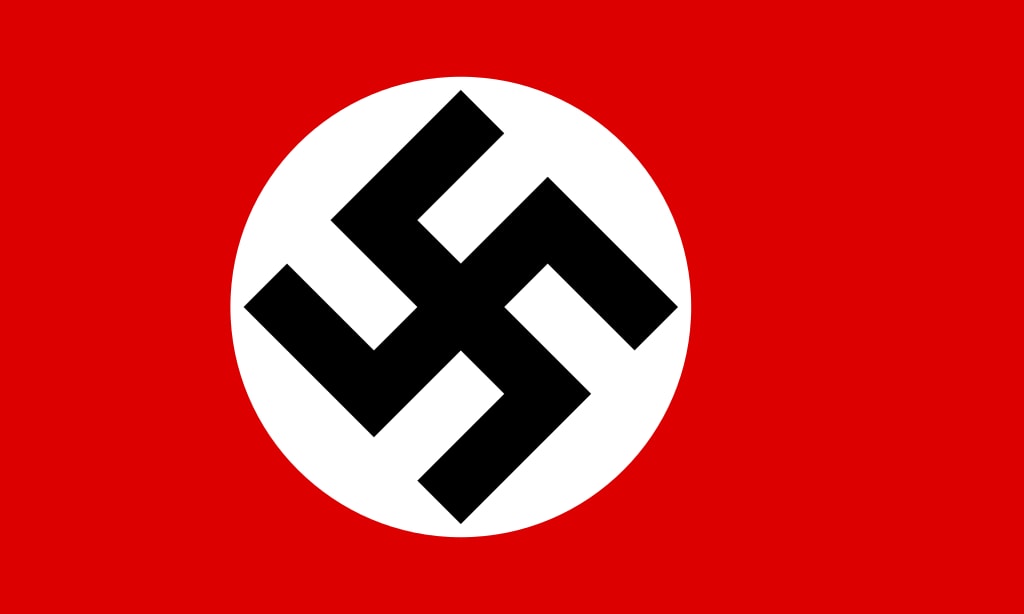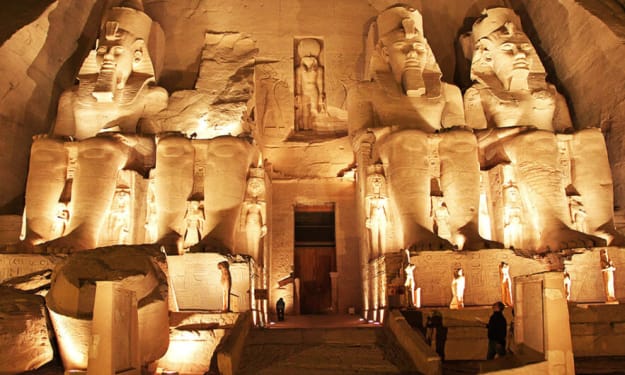The Nazi Germany
The rise and fall of the Nazi regime in Germany

The Nazi Germany
The Nazi Germany was a period in Germany's history from 1933 to 1945 when the Nazi Party, led by Adolf Hitler, held power. The Nazi regime was a totalitarian dictatorship that was responsible for the Holocaust, the systematic murder of six million Jews and millions of other people.
The Nazi Party was founded in 1919 by Adolf Hitler. Hitler was a charismatic leader who promised to restore Germany to its former greatness. The Nazi Party gained popularity in the years after World War I, which Germany lost. Many Germans were angry and frustrated with the Weimar Republic, the government that ruled Germany after World War I. The Nazi Party promised to restore Germany to its former glory and to punish those who were blamed for the war.
The Nazi Party won the most seats in the German parliament in 1932. Hitler was appointed chancellor of Germany in 1933. Hitler quickly consolidated his power. He abolished the parliament and the presidency, and he established a one-party state. The Nazis also established a secret police force, the Gestapo, which was responsible for suppressing dissent.
The Nazis implemented a series of policies that were designed to create a new Germany. They banned trade unions and other political parties, and they censored the media. The Nazis also introduced a program of racial purification, which was aimed at eliminating Jews and other groups that they considered to be inferior.
The Holocaust was the systematic murder of six million Jews by the Nazi regime. The Nazis also murdered millions of other people, including Roma, homosexuals, and people with disabilities. The Holocaust began in 1941, when the Nazis invaded the Soviet Union. The Nazis established concentration camps and extermination camps in Poland and other parts of occupied Europe. In these camps, Jews and other prisoners were forced to work as slave labor or were killed immediately.
The Nazi regime came to an end in 1945, when Germany was defeated in World War II. Hitler committed suicide in April 1945, and the remaining Nazi leaders were captured or killed. The Nuremberg trials, which took place from 1945 to 1949, were held to prosecute Nazi leaders for war crimes, crimes against humanity, and genocide. Twenty-two Nazi leaders were convicted and sentenced to death.
The rise and fall of the Nazi regime in Germany
The Nazi regime in Germany was a period of totalitarian dictatorship that lasted from 1933 to 1945. It was led by Adolf Hitler, who was appointed chancellor of Germany in 1933 and then became dictator in 1934. The Nazi regime was responsible for the Holocaust, which was the systematic murder of six million Jews and millions of other people.
The rise of the Nazi Party
The Nazi Party, or National Socialist German Workers' Party, was founded in 1919 by Adolf Hitler. The party's ideology was based on nationalism, racism, and anti-Semitism. The Nazis believed that the German people were superior to all other races and that they were destined to rule the world.
The Nazi Party gained popularity in the years after World War I. The party promised to restore Germany to its former greatness and to punish those who were blamed for the war. The Nazis also appealed to the working class, promising to create jobs and improve the economy.
In the 1932 German federal election, the Nazi Party won the most seats in the Reichstag, the German parliament. Hitler was appointed chancellor of Germany on January 30, 1933.
The Nazi dictatorship
Hitler quickly consolidated his power. He abolished the Reichstag and the presidency, and he established a one-party state. The Nazis also established a secret police force, the Gestapo, which was responsible for suppressing dissent.
The Nazis implemented a series of policies that were designed to create a new Germany. They banned trade unions and other political parties, and they censored the media. The Nazis also introduced a program of racial purification, which was aimed at eliminating Jews and other groups that they considered to be inferior.
The Holocaust
The Holocaust was the systematic murder of six million Jews by the Nazi regime. The Nazis also murdered millions of other people, including Roma, homosexuals, and people with disabilities.
The Holocaust began in 1941, when the Nazis invaded the Soviet Union. The Nazis established concentration camps and extermination camps in Poland and other parts of occupied Europe. In these camps, Jews and other prisoners were forced to work as slave labor or were killed immediately.
The Holocaust was a horrific event that resulted in the deaths of millions of innocent people. It is a reminder of the dangers of intolerance and hatred.
The end of the Nazi regime
The Nazi regime came to an end in 1945, when Germany was defeated in World War II. Hitler committed suicide in April 1945, and the remaining Nazi leaders were captured or killed.
The Nuremberg trials, which took place from 1945 to 1949, were held to prosecute Nazi leaders for war crimes, crimes against humanity, and genocide. Twenty-two Nazi leaders were convicted and sentenced to death.
The Nazi regime was a dark period in German history. It is important to remember the events of this period and to learn from them so that they never happen again.
Conclusion
The Nazi regime in Germany was a totalitarian dictatorship that was responsible for the Holocaust. The rise of the Nazi Party was due to a number of factors, including the economic and political instability of Germany after World War I. The Nazi dictatorship implemented a series of policies that were designed to create a new Germany, including the suppression of dissent, the establishment of a racial purification program, and the Holocaust. The Nazi regime came to an end in 1945, when Germany was defeated in World War II. The Nuremberg trials were held to prosecute Nazi leaders for war crimes, crimes against humanity, and genocide.
About the Creator
Hmid Abderrahmane
Abderrahman hmid, 23, a skilled content writer with translation expertise. Experienced in journalistic translation across fields. Owns a collection of unpublished fiction and creative stories awaiting an online debut. Thanks!






Comments
There are no comments for this story
Be the first to respond and start the conversation.